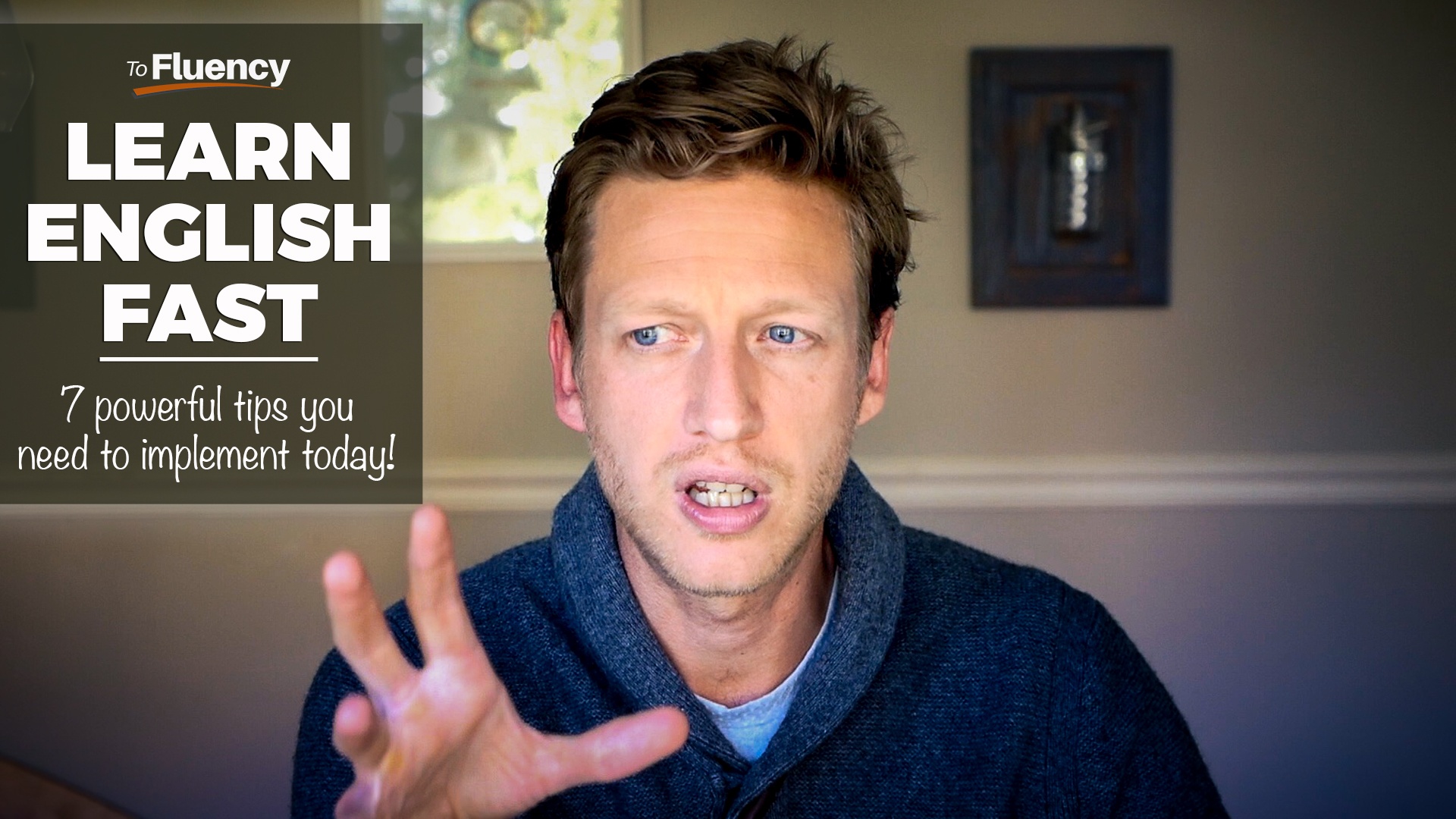

Step 3: practice speaking the common sentence patterns fluently in those conversations according to the tips shared above, such as speaking in front of a mirror, talking to yourself, etc.Do you find it difficult to speak English fluently and confidently, even after many months or years of study? Step 2: Learn the vocabulary in that conversation by looking up the word, listening to the pronunciation and saving the vocabulary to practice
#How to learn english fluently tv
You can watch videos on Youtube (watch American comedies, TV Shows). Step 1: Refer to the dialog content that native speakers often exchange with each other. Or simply, will you need to communicate with anyone by English in the early future? If so, it’s time to prepare the content for the talk so that you are confident and fluent. Step 3: Open the daily notebook and review.Īre you studying English for a specific purpose? For example, job interviews, presentations, negotiations with partners. Step 2: take note of the new phrases you watch. Step 1: start watching the actual dialog, the content that the natives often watch, or read. That’s how Americans send greetings to each other. In this case, native speakers often say, “How are you doing?” or “What’s up?” Or if a person tells his neighbor, “Break a leg.” If you only learn the word “break” you will only know that word means “to damage something by separating it into pieces.” But if you learn the whole phrase, you will understand that it means “perform successfully” or simply “do well”. Learn the whole phrase, learn the vocabulary in the context of using that word.įor example, when asking someone, you can say, “how do you feel today?”. Have you ever found yourself learning English well, but when communicating with native speakers, you don’t catch up with the way they use words? Would you be surprised if they say, “What’s up?” ? If the answer is yes, stop memorizing a single new word. Learn phrases instead of learning each word individually Keep listening and repeating will help you create a natural reflex without much effort.Ĩ. Finally, do not forget to practice listening, watching English wherever you are so that you can focus on the speaking style of native speakers.
#How to learn english fluently how to
When encountering new words, always look up the dictionary to understand how to pronounce words.īesides, you can refer to the principles of putting stress in English to predict the pronunciation of words yourself. But if you stress “preSENT,” then the Americans will understand “Presentation.” Therefore, the English dictionary always has more phonetic parts, so you know where to emphasize the stress.

If you say “PREsent” then it means “Gift”. Moreover, with the same English word, if you wrongly stress, it will give you a word with entirely different meanings.

But they will undoubtedly understand heLLO because you correctly put a stress on the “LLO.” You will find that speaking English is as natural as your mother tongue.ĭo you know that every English vocabulary has a stress? For example, how do you say the word “Hello”? If you say “HEllo”, the listeners may not understand that you are greeting. By practicing like this, you will not be afraid to speak English anymore. Please don’t care about the wrong grammar or wrong vocabulary, as long as you say it out loud. Read aloud the thoughts that are going through your mind in English. Have you ever mumbled to yourself with your thoughts in your mother language? A few times, right? So why not mutter in English? Whenever you feel comfortable, you can talk to yourself. When you say that you have no one to practice speaking with, I think you forget an essential person. Practice speaking English whenever you can Refer to the following 11 tips to become an excellent English speaker.ġ. In fact, you absolutely can practice speaking English yourself and improve your English fluency. You think that you do not have foreign friends to practice hence, you can never make progress.

You don’t know how to speak English smoothly and confidently. You can read, listen, and write English quite comfortably, but when you have to open your mouth to speak an English sentence to a foreigner … Oops, the vocabulary is flying.


 0 kommentar(er)
0 kommentar(er)
